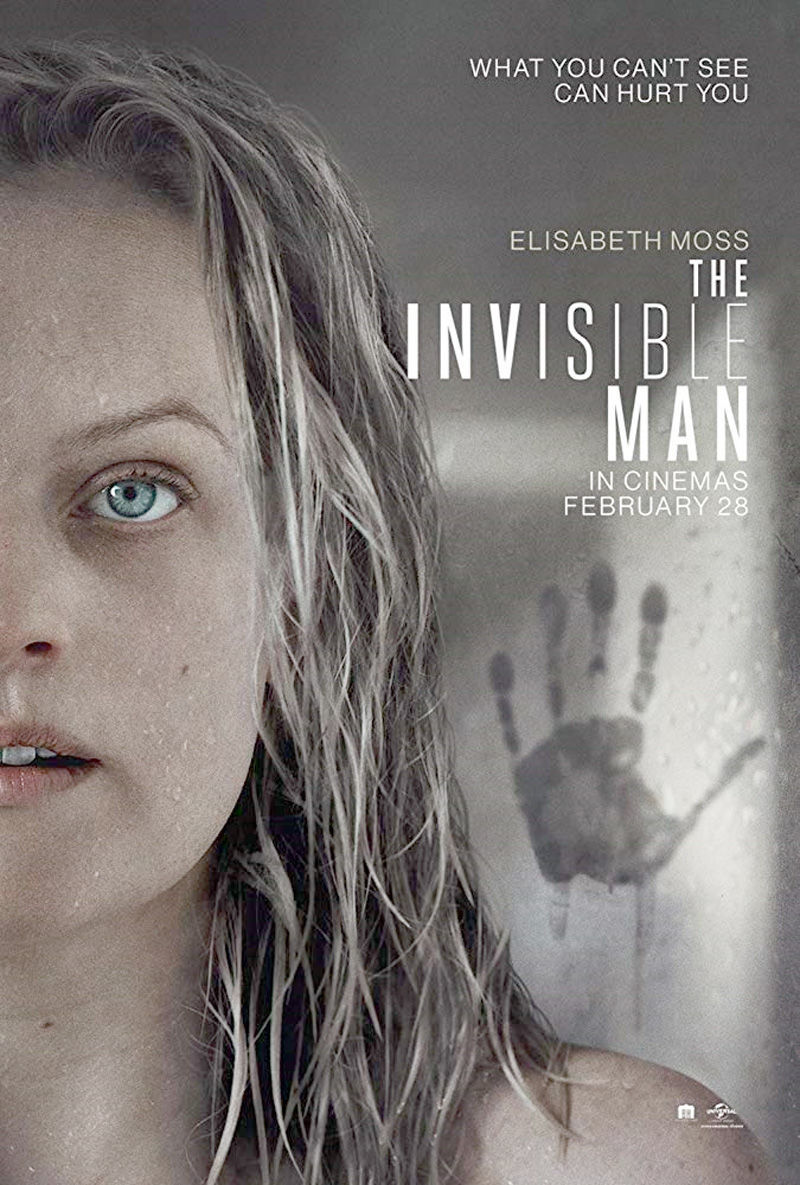
28 Feb Invisible Man Review
INVISIBLE MAN
An atmospheric, well-acted, modern take on a horror classic that shows that creativity trumps budget every time.
2020’s The Invisible Man is an extremely good movie that was released at literally the worst time in modern cinema history: one week before coronavirus lockdowns. Despite such odds, the film has been a well-deserved financial and critical success.
Released by Jason Blum’s Blumhouse Productions and essentially licensed from Universal Studios’ classic monster legacy, The Invisible Man marks Universal’s ‘third time a charm’ reboot after the mediocre Dracula Untold (2014) and Tom Cruise’s rare (and abysmal) misfire The Mummy (2017).
Director Leigh Whannell, a master of both impressive horror films and low budgets, directs Elisabeth Moss in a taut thriller that demonstrates that the substandard scripts and overblown budgets of those previous flicks were horribly mismanaged. Where The Invisible Man succeeds is by avoiding the trap of “duplicate and elaborate” and instead finds an angle on the material that not only cements the narrative as appropriately set in modern day, but is instantly relatable to modern audiences as a fundamentally horrific scenario to set any film.
The Invisible Man opens with Moss’s Cecelia Kass executing a late-night escape from a wealthy but abusive spouse. Within minutes, the audience clearly understands their awful relationship, the inherent physical danger, and emotional terror that pervade the entire film by setting up the protagonist and antagonist in clearly defined, easily accessible roles: abused wife and abusive husband. Both roles bring with them appropriate character baggage that, instead of coming across as cliché, allow Whannell to quickly transition into a story of how Cecelia is terrorized by her husband.
Of course, the twists are that he seemingly commits suicide after losing her, and then proceeds to terrorize her as…wait for it: an invisible man! The genius of the conceit is that Whannell, who also wrote the story, took a very strong premise for a modern thriller, and expertly adapted it to Universal’s Invisible Man property. Once these two concepts were brought together in concept, the movie writes itself, with some excellent science-fiction twists gloss over the titular spoiler that an invisible man is the antagonist (as well as some other important plot points prominently spoiled in trailers).
The Invisible Man proves that despite the audience knowing so much about the story, from the idea of an invisible man to the plot points spoiled in marketing material, the movie is still edge-of-your-seat intense. The special effects are top notch and appropriately restrained for a relatively low-budget film, and Whannell’s filmmaking skills and Blumhouse’s production principles facilitate a look that, in every way, looks more cinematic than Cruise’s $195m Mummy abomination.
The Invisible Man is highly recommended, and anyone that knows me will appreciate that it is exactly the kind of movie that made me jump from my seat and shout more than a few expletives throughout the runtime.
Pros:
- Beautiful, cinematic, and atmospheric
- Excellent acting
- Great pacing
- Flawless merging of old movie monster conceit with modern setting
Cons:
- There is less action than expected, but this really leaves you wanting more, vis-à-vis the shark in Jaws.
Rating: 4/5
Review by Jim Washburn


No Comments